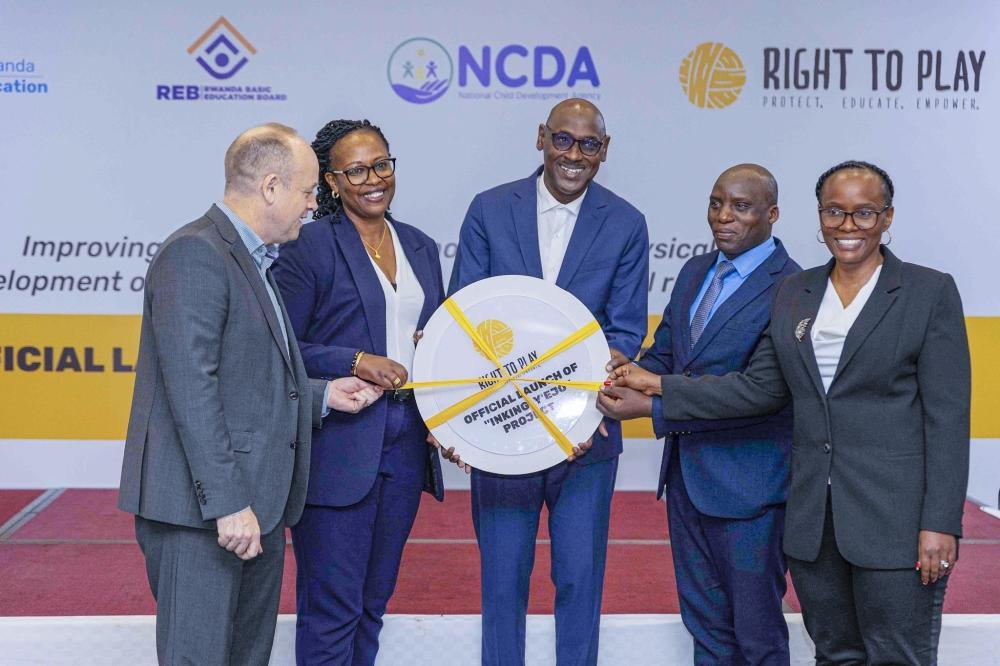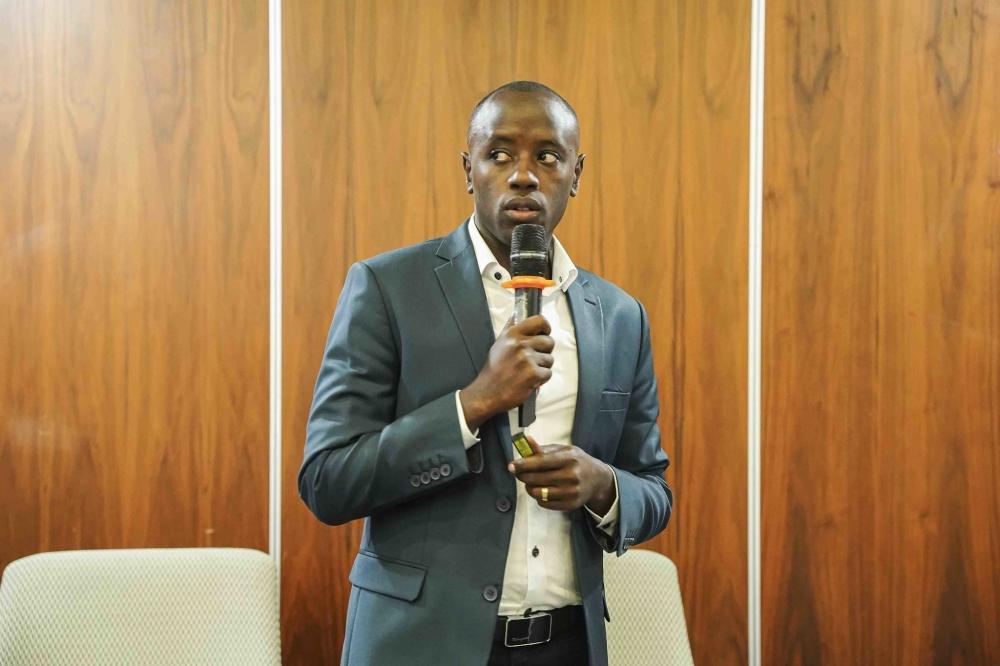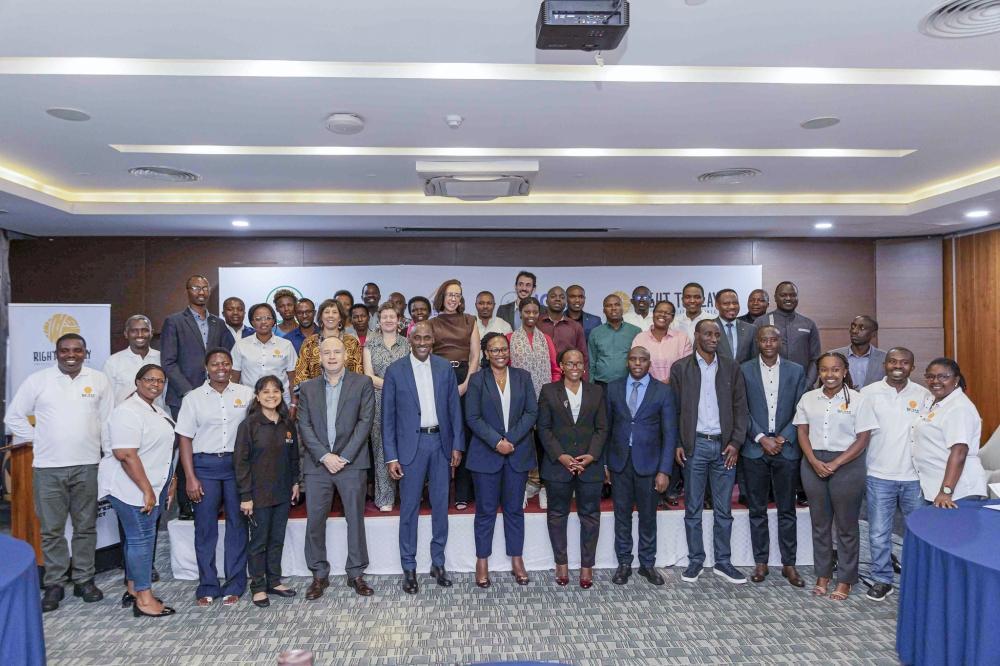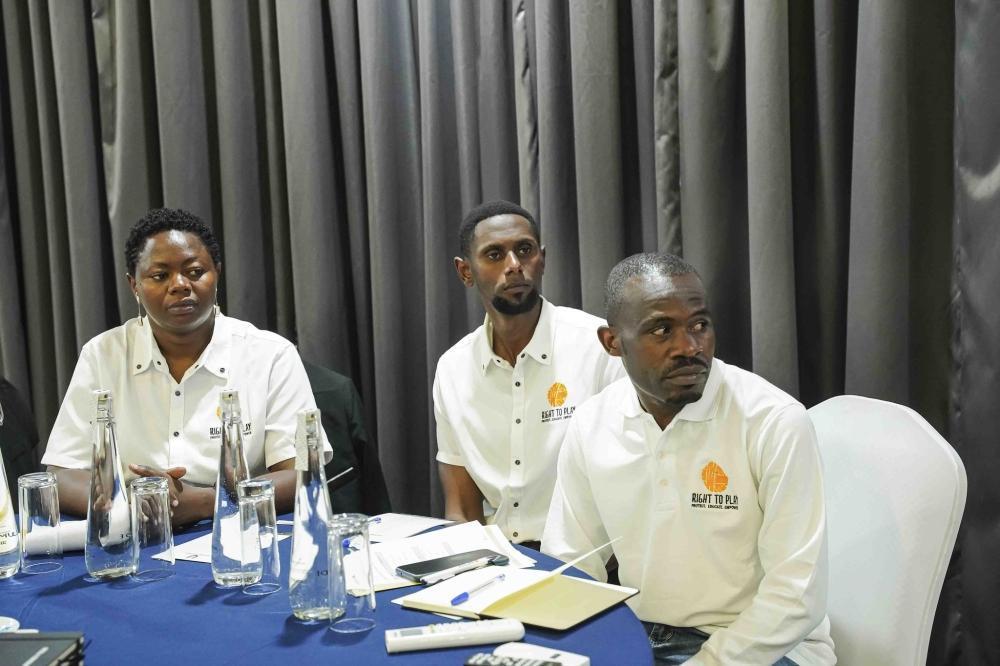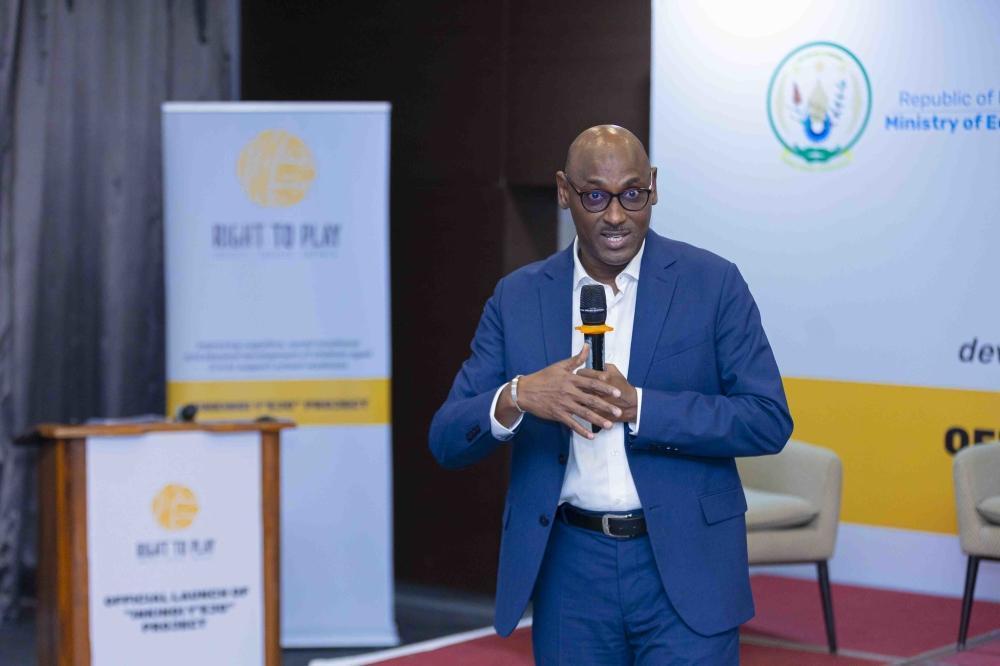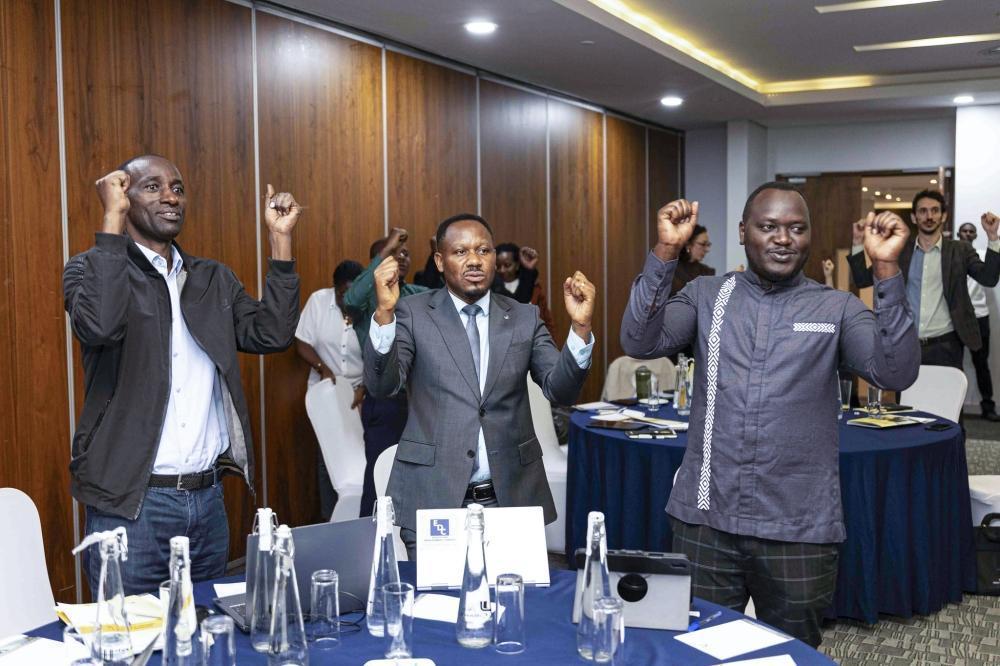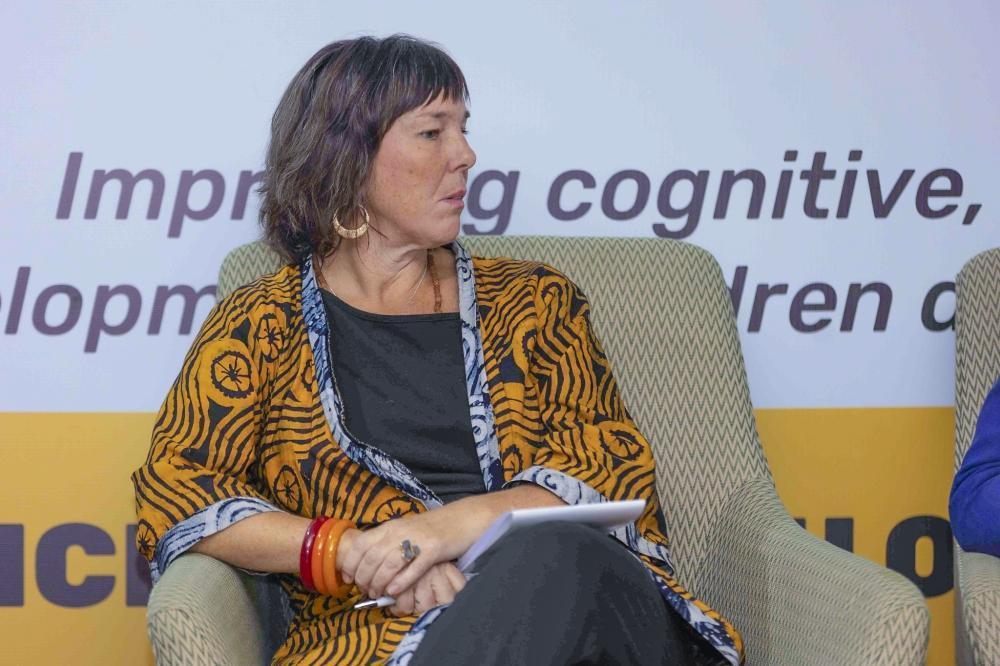Africa-Press – Rwanda. Right To Play has launched a new three-year Early Childhood Development (ECD) project (2025–2027), aimed at building the capacity of pre-primary teachers, caregivers, and parents.
The initiative, officially announced on June 5, will be implemented in Ruhango, Rubavu, and Kayonza districts, focusing on school-based and community-based ECD settings, along with parental and local authority engagement through play-based learning and parenting training.
Rodgers Kabamba, Program Manager at Right To Play in Rwanda.
According to Rodgers Kabamba, Program Manager at Right To Play in Rwanda, the project is designed to support and complement existing government efforts, including the National Strategy for Transformation (NST2) and the Education Sector Strategic Plan (ESSP).
“One of the goals is to increase the percentage of children entering primary school after attending pre-primary from 44.7 per cent to 65 per cent by 2029. We aim to contribute to that,” he said.
The project will focus on three main components: infrastructure development, teacher training, and parental engagement.
“We will train both teachers and parents. Teachers will be equipped with skills to teach young children, especially through play-based methods. Parents will also learn how to support their children’s education at home, guided by ‘parent champions’ trained parents who mentor others,” Kabamba explained.
In addition, the initiative will provide learning materials to support play-based learning in classrooms.
Kabamba noted that the three target districts were chosen because of Right To Play’s existing presence and the Ministry of Education’s recommendation to focus on specific areas for comprehensive coverage from pre-primary to upper primary levels.
To measure its impact, the organisation will use the International Development and Early Learning Assessment (IDELA) tool. Kabamba said this will include a baseline assessment to understand the current situation, followed by midline and endline evaluations. This phased approach, he added, will enable continuous monitoring and the development of actionable recommendations rather than simply producing a final report.
Flora Mutezigaju, Deputy Director General of the Rwanda Education Board (REB), praised the project’s alignment with national strategies.
“We have interventions around teacher capacity development, age-appropriate teaching and learning resources, parental and community engagement, monitoring and coaching, and infrastructure development,” she said.
Mutezigaju emphasised that increasing access to quality ECD centers that meet national standards is a key priority in the ESSP and that this project directly supports that goal.
“The focus on teacher training and parental involvement addresses areas where additional support is needed,” she added.
Emmanuel Munyampeta, Positive Parenting Specialist at the National Child Development Agency (NCDA), also affirmed that the project aligns with NCDA’s mission to ensure every child reaches their full potential.
“Our mandate is to ensure no child is left behind by supporting holistic development from conception to six years, with a comprehensive range of services beyond education,” he said.
Munyampeta pointed out that past efforts have faced challenges due to fragmented service delivery among partners. “This project will help address those gaps by promoting better coordination and integrated support,” he explained.
He further stressed that preparing a child for school goes beyond academics. “Preparing a child for school means ensuring they are well-fed, protected, clothed, and raised in nurturing environments with engaged parents and communities. This project directly supports that vision and helps us meet our mission.”
Officials and delegates pose for a group photo.
The initiative, officially announced on June 5, will be implemented in Ruhango, Rubavu, and Kayonza districts.
The project is designed to support and complement existing government efforts, including the National Strategy for Transformation (NST2) and the Education Sector Strategic Plan (ESSP).
The three-year Early Childhood Development (ECD) project (2025–2027), aimed at building the capacity of pre-primary teachers, caregivers, and parents.
For More News And Analysis About Rwanda Follow Africa-Press

